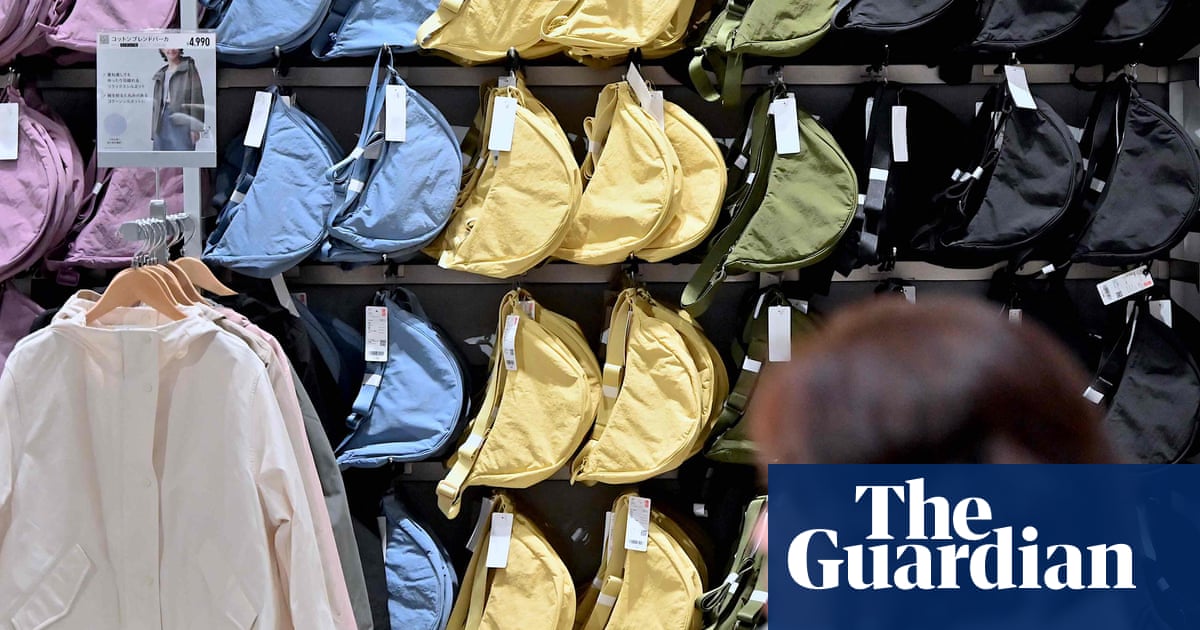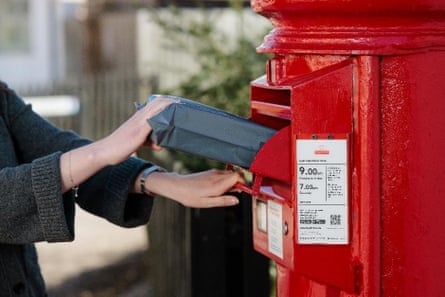
The company Uniqlo has filed a lawsuit against the Chinese e-commerce platform Shein for selling products that they believe are imitations of their famous banana-shaped “it” bag, called the “round mini”.
The lawsuit requests for Shein to cease the sale of counterfeit products and provide compensation for any losses caused by their sale. It was submitted to the Tokyo district court last month and names Shein Japan, as well as its parent companies Roadget and Fashion Choice, as defendants.
Uniqlo has reported that it submitted a complaint due to their belief that Shein’s imitation products closely resemble their own products, which greatly diminishes the trust customers have in the quality of Uniqlo’s brand and products.
The Japanese corporation stated that it strongly opposes any actions that violate its intellectual property and will respond with appropriate measures, such as legal action.
A representative from Shein stated: “Shein values the rights of others’ intellectual property and treats all allegations of infringement with importance. We are currently looking into this issue.”
The purse is priced at £14.90 and is known as the “Mary Poppins bag” due to its impressive capacity for holding a large number of items. It has become Uniqlo’s top-selling bag ever, with seven sold-out runs last year.
The bag initially gained popularity in April 2022 after a TikTok user named @caitlinphillimore uploaded a 43-second video of her unpacking her round mini bag. The contents included a lip balm, biscuits, a wallet, keys, phone charger, hair clip, over-ear headphones, camera, perfume, and an EpiPen. The video has been viewed over 1 million times and the hashtag #uniqlobagviral has received nearly 24 million views on TikTok.
The bag is crafted from nylon and has dimensions of 28cm x 17cm. It comes in a variety of 10 unique options, featuring diverse colors, patterns, and materials such as corduroy. It can be worn either over the shoulder or as a crossbody.
According to Lyst’s yearly list of the most popular fashion brands, Uniqlo’s product was named as the top bag of the year, surpassing offerings from high-end designers like Bottega Veneta and Alaïa.
Uniqlo’s decision follows a rise in copyright infringement claims against Shein, a Chinese company established in 2008 that offers affordable clothing in over 150 countries.
In the past summer, H&M, a Swedish company, initiated a legal case in Hong Kong against Shein for copyright infringement. In September, Chrome Hearts, a brand that sells accessories and clothing, also filed a similar complaint.
In the same month, the Observer interviewed three individual designers who accused Shein of plagiarizing their designs. Additionally, Krista Perry, Larissa Martinez, and Jay Baron, all separate designers, filed a lawsuit in the US alleging that Shein was selling identical copies of their work. They claimed that this was a regular practice in Shein’s design process and was ingrained in the company’s culture.
Ignore the advertisement for the newsletter.
after newsletter promotion
Previously, Shein stated that it had implemented measures to prevent copyright violations by both its suppliers and sellers on its marketplace. The company reported that its efforts, such as expanding its US product review team and investing in image recognition technology, have led to a decrease in infringement claims.
Shein is currently facing various legal problems, not just copyright claims. In December, Temu, a Chinese-owned e-commerce platform, filed a lawsuit against Shein, claiming that the popular fast-fashion company engaged in “mafia-style intimidation” tactics by bullying, threatening, and even unlawfully detaining suppliers in China.
Shein declared the lawsuit to be baseless and promised to protect itself.
The company was founded in China by the entrepreneur Chris Xu and its headquarters are now in Singapore. Shein has grown rapidly by marketing extremely cheap items that quickly jump on trends via social media.
In November, Shein allegedly submitted documents indicating their intention to list on the US stock market with an estimated value of $90 billion (£71 billion). Last week, it was reported that Shein had requested approval from the Chinese government for this plan.
Source: theguardian.com


















